Contact us today, and let Ironclad Construction build a lifetime of durability for your roof. We never cut corners, compromise on materials, or sacrifice quality for personal gain. When you choose Ironclad Construction, you can be confident that you’re receiving the best service possible. We do the job right the first time, ensuring you won’t have to deal with costly repairs in the future.
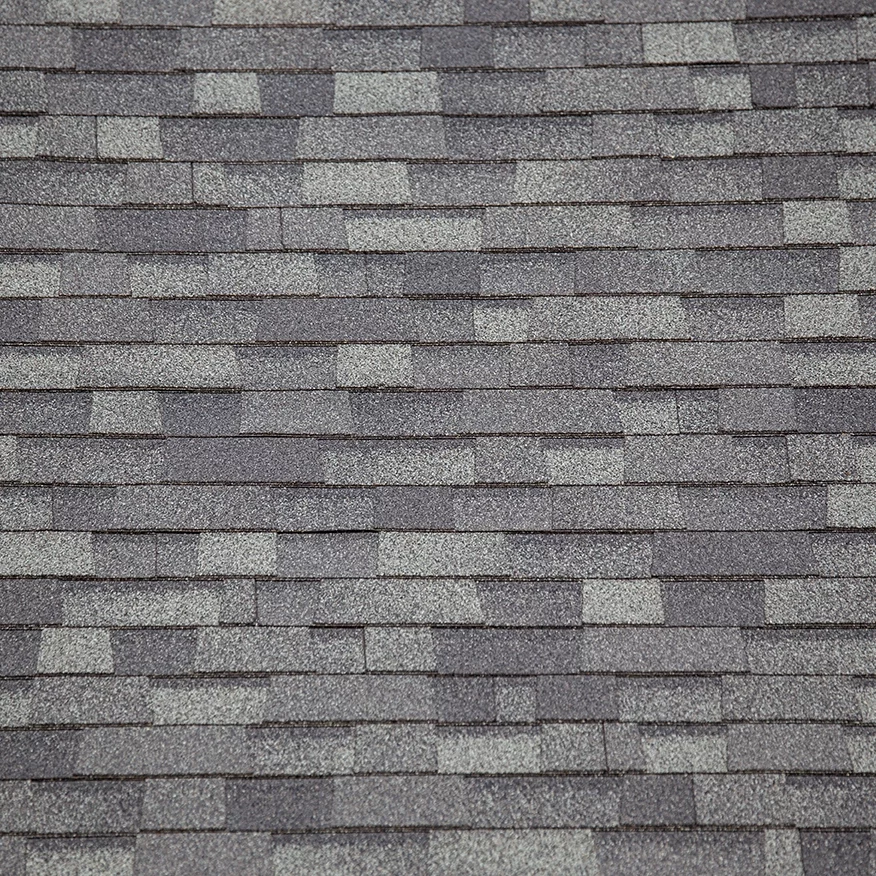
IRONCLAD CONSTRUCTION | ROOFING
Asphalt Roofing
(30 & 50-Year Warranty) Asphalt roofing, also known as asphalt shingle roofing, is a popular and widely used roofing material. Here’s what you should know about asphalt roofing:
Asphalt roofing is one of the most cost-effective options available, making it a popular choice for homeowners on a budget. It offers a good balance between affordability and durability.
Asphalt shingles are available in various colors, styles, and designs, allowing homeowners to choose a look that matches their aesthetic preferences and complements their home’s architecture.
High-quality asphalt shingles are designed to withstand various weather conditions, including rain, wind, and sunlight. They are engineered to resist cracking, warping, and curling, providing long-lasting protection for your home.
In the event of damage, individual asphalt shingles can be easily replaced or repaired without a complete roof replacement. This technique can be cost-effective if only a portion of the roof is damaged.
Asphalt shingles are lightweight and easy to install, making them a preferred choice for many roofing contractors. The installation process is typically faster and less complex than other roofing materials, helping reduce labor costs.
Asphalt roofs require regular inspections and maintenance, including clearing debris, checking for damaged shingles, and keeping the roof clean. However, overall maintenance needs are relatively low compared to other roofing materials.
Some asphalt shingles are designed with energy-efficient features, such as reflective coatings or cool roof technology. These features reduce heat absorption and improve energy efficiency, potentially lowering cooling costs.
The lifespan of asphalt roofing can vary depending on factors such as the quality of the shingles, climate conditions, and maintenance practices. Asphalt shingles can last 20 to 30 years or more with proper installation and maintenance.
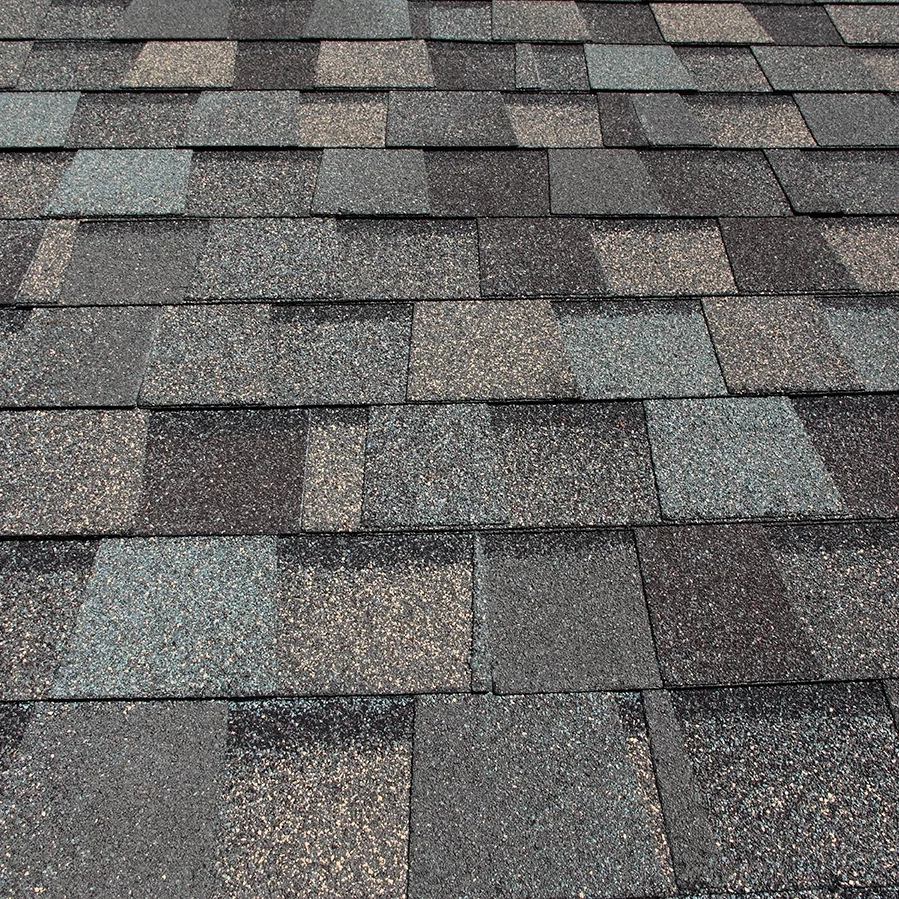
IRONCLAD CONSTRUCTION | ROOFING
Composite Shingle Roofing
(30 & 50-Year Warranty) Composite shingle roofing is a popular and widely used roofing material. Here’s what you should know about composite shingle roofing:
Composite shingle roofing is one of the most cost-effective options available, making it a popular choice for budget-conscious homeowners. It offers a good balance between affordability and durability.
Composite shingle roofing is available in various colors, styles, and designs, allowing homeowners to choose a look that matches their aesthetic preferences and complements their home’s architecture.
High-quality composite shingles are designed to withstand various weather conditions, including rain, wind, and sunlight. They are engineered to resist cracking, warping, and curling.
In the event of damage, individual composite shingles can be easily replaced or repaired without a complete roof replacement.
Easy Installation. Composite shingles are relatively lightweight, making them more accessible and faster to install than other roofing materials.
Low to Moderate Maintenance. Composite shingle roofs require regular inspections and maintenance, including clearing debris, checking for damaged shingles, and keeping the roof clean.
Some asphalt shingles are designed with energy-efficient features, such as reflective coatings or cool roof technology. These features reduce heat absorption and improve energy efficiency, potentially lowering cooling costs.
The lifespan of composite shingle roofing can vary depending on factors such as the quality of the shingles and environmental factors. Higher-quality composite shingles can last 20 to 30 years or more with proper installation and maintenance.
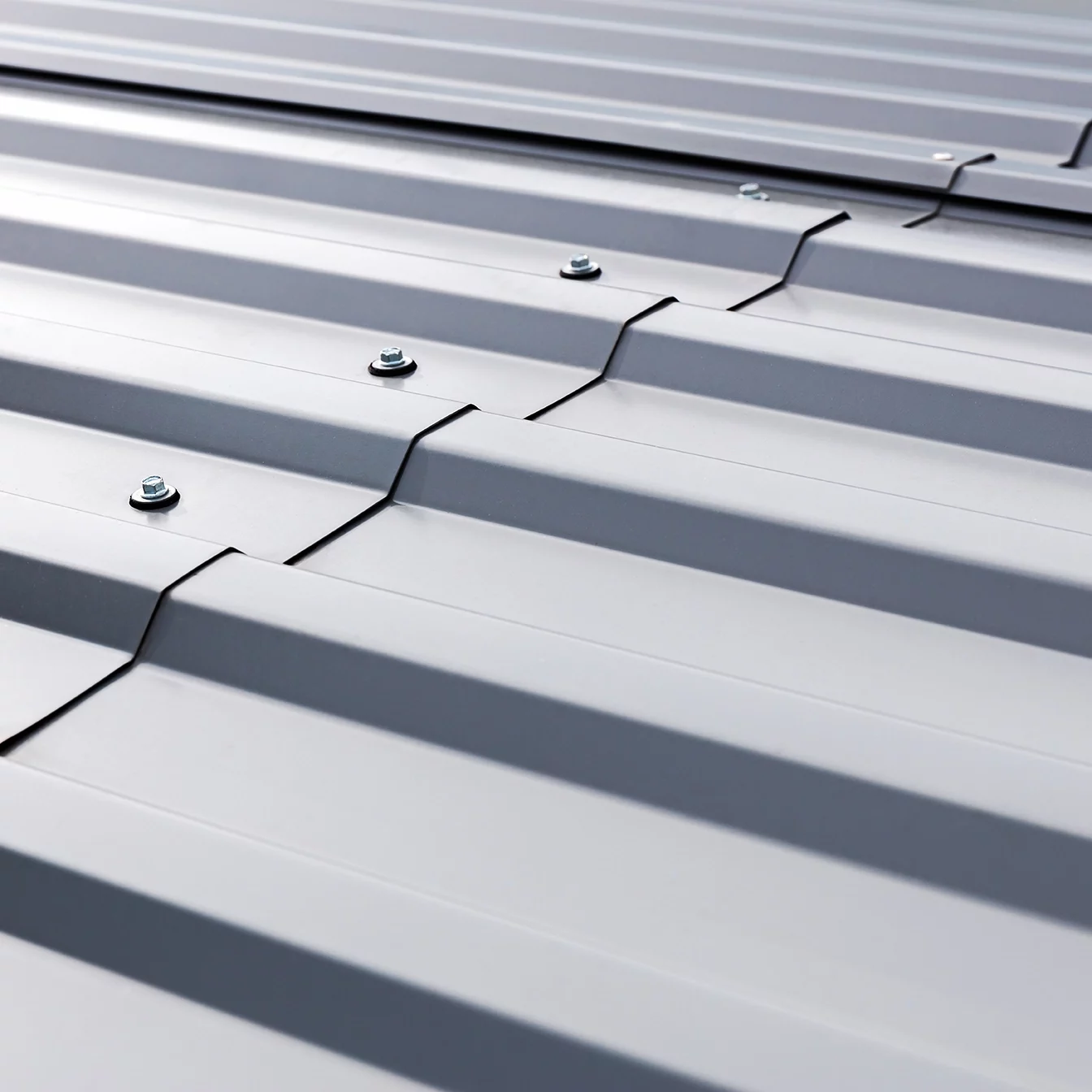
IRONCLAD CONSTRUCTION | ROOFING
Steel Roofs - Raised and Hidden Fastener
The two types of steel roofs, raised and hidden fasteners, differ in their installation method and appearance. Here are the main differences between raised and hidden fastener steel roofs:
Raised Fastener Steel Roofs:
Raised fastener steel roofs are installed using exposed fasteners that penetrate the surface of the roofing panels. The fasteners are visible on the surface of the roof.
The exposed fasteners create a visible pattern on the roof, adding a distinct architectural element. Some homeowners appreciate the traditional and industrial look created by the exposed fasteners.
Raised fastener roofs may require periodic inspection and tightening of the exposed fasteners to ensure their proper function. Regular maintenance is essential to prevent potential leaks.
Raised fastener steel roofs generally have a lower installation cost than hidden fastener roofs due to the more straightforward installation process and lower material costs.
Hidden Fastener Steel Roofs:
Hidden fastener steel roof installation uses a concealed fastening system, where the fasteners are not visible on the surface of the roofing panels. They are secured to the roof through clips or hooks underneath the panels.
Hidden fastener roofs offer a sleek, clean, and uninterrupted appearance since the fasteners are invisible, creating a more streamlined and modern look for the roof.
Hidden fastener roofs generally require less maintenance than raised ones. The absence of exposed fasteners reduces the need for periodic inspection and maintenance. Helps improve the roof’s weather resistance by reducing the potential for water infiltration through the fastener holes.
Hidden fastener steel roofs typically have a higher installation cost than raised ones. The concealed fastening system and additional components contribute to the increased cost.
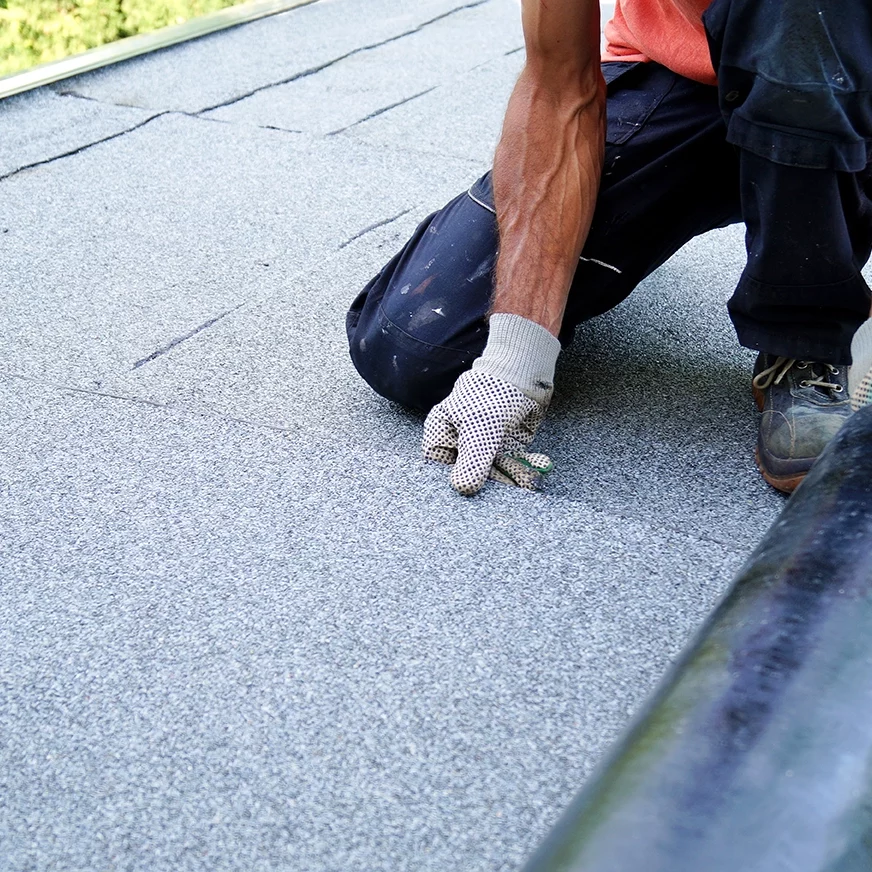
IRONCLAD CONSTRUCTION | ROOFING
Flat Roofs
Flat roofs are a unique roofing system commonly found on commercial buildings and some residential structures. Here’s what you should know about flat roofs:
Flat roofs have a low slope or no slope at all, typically with a pitch of 10 degrees or less. Their design provides a horizontal or near-horizontal surface, allowing for additional usable space on top of the building.
Proper drainage is crucial for flat roofs to prevent water pooling, which can lead to leaks and structural issues. Flat roofs incorporate a system of drains, scuppers, or gutters to effectively channel water off the roof.
Flat roof construction uses various materials, including built-up roofing (BUR), modified bitumen, EPDM (rubber), PVC, TPO, and metal. Each material has advantages and considerations regarding durability, cost, and maintenance requirements.
Flat roofs require regular maintenance to ensure longevity and prevent leaks and water damage. Regular inspections, cleaning debris from drains, and addressing any signs of wear or damage are essential.
Flat roofs offer the potential for energy efficiency improvements. They provide ample space to install solar panels or green roof systems, which can help reduce energy consumption and promote sustainability.
Flat roofs can provide additional functional space, allowing for rooftop gardens, outdoor recreational areas, or HVAC equipment placement. However, access to the roof should be carefully controlled to ensure safety and prevent unauthorized entry.
Proper installation of flat roofs is crucial to ensure their performance and longevity. Hiring experienced and qualified roofing contractors specializing in flat roof installations is recommended.
It’s important to check local building codes and regulations before installing or modifying a flat roof. Permit requirements and specific regulations may vary depending on your location.
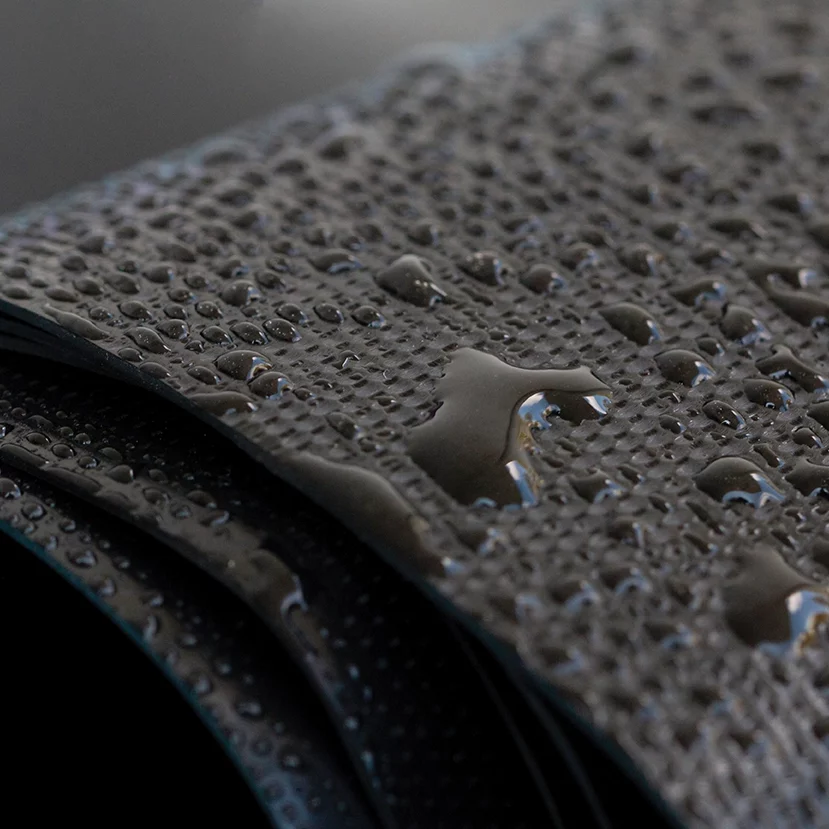
IRONCLAD CONSTRUCTION | ROOFING
EPDM Roofing
EPDM (Ethylene Propylene Diene Monomer) roofing is a popular and durable synthetic rubber roofing membrane type. Here’s what you should know about EPDM roofing:
EPDM roofing is known for its exceptional durability and longevity. It can withstand various weather conditions, including extreme temperatures, hail, UV radiation, and ozone exposure. EPDM roofs often have a lifespan of 40 years or more when properly installed and maintained.
EPDM roofing is highly flexible and can adapt to the movements and expansions of the building without tearing or cracking. This flexibility allows for better resistance against leaks and damage caused by structural shifting.
EPDM membranes provide excellent waterproofing capabilities. The single-ply sheets are typically installed in large, seamless sections, minimizing the potential for leaks at seams and joints. EPDM roofs can effectively protect against water infiltration when installed correctly.
EPDM roofs require minimal maintenance over their lifespan. Regular inspections, debris cleaning, and addressing minor issues can prolong its performance. EPDM roofs do not typically require frequent repairs or coating applications.
EPDM roofing uses various methods, including fully adhered, mechanically fastened or ballasted systems. The installation requires skill and expertise to ensure proper adhesion, seam integrity, and quality.
EPDM roofing is generally considered a cost-effective roofing option. While the initial installation cost may be higher than other materials, the long lifespan and low maintenance requirements can result in long-term cost savings.
In the event of damage, EPDM roofs are typically repairable. Small punctures or tears can be patched or sealed using compatible materials, extending the roof’s life without total replacement.










